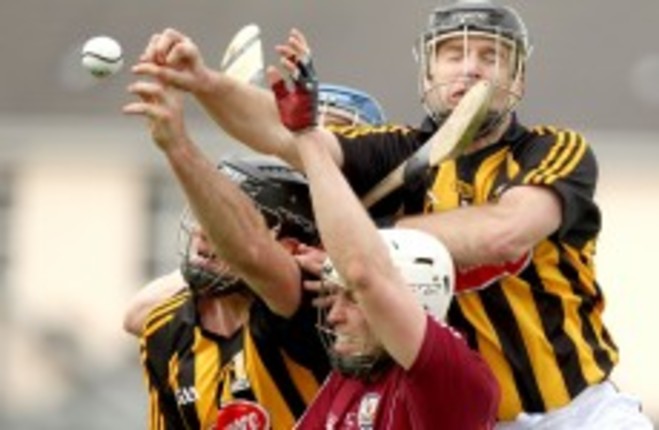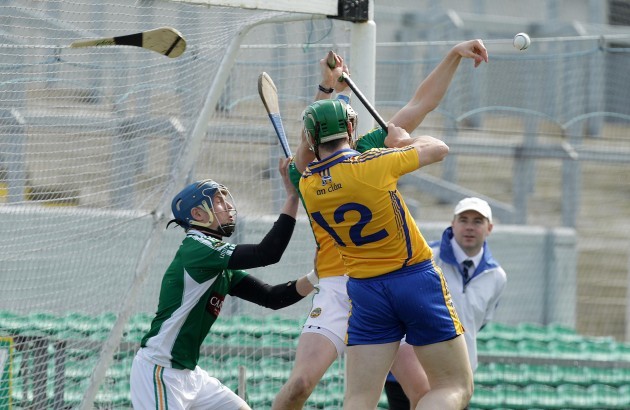AMERICAN SPORTS LOVE their statistics. The sabermetrics. Their Moneyballing. Oh how they love to quantify.
The proliferation of statistics on the other side of the Atlantic is immense and while soccer is catching up, the resources are not there for the GAA to even compete. A quick search and you can find out some quirky American sports facts.
Toronto Maple Leafs’ David ‘Tiger’ Williams spent 3966 minutes in the penalty box from 1974-88, a figure that jumps to 4421 if you include the play-offs – basically three days off the ice.
Point guard John Stockton made 15806 assist in his NBA career – to match this record, you would need to play 82 games per season for 20 years and average 9.5 assists per game.
Michael Jordan scored 10 or more points in 866 consecutive games for the Chicago Bulls – there was just a single game where he did not reach double digits. Jerry Rice finished his NFL career with 1549 receptions and 22,895 receiving yards. Babe Ruth ended his career with a .690 batting average.
Across 80 games, Wilt Chamberlain averaged 50.4 points per game in the 1961-62 season for the LA Lakers. While Phil Jackson becoming the winningest NBA coach in Lakers history a couple of years ago: his record is .704 over the course of his entire coaching career.
Which means his team never became a sub-500 team. For those unfamiliar with the 500 record, it is quite simple – when you’re team has won half its games or more. It is frequently referred to by pundits and commentators in the States.
So in that spirit, we thought it worth looking at the one place in the GAA where you can quantify easily, where there is a level playing field and each team plays each other at least once: the regulation rounds of the National Hurling League.
The one fly in the ointment being that the GAA allows for draws so in a situation where there is an uneven number of games, we’ll work out the percentage. So if you win and lose three but draw the other in a seven-game league, that is a 500 record – a pass.
Just six teams have stayed in the top hurling league from 2009 to 2011 (those who currently occupy the new six-team Division 1A), and Cork are the only team not to have achieved an overall 500 record in that time. What’s more, The Rebels have dipped below that level twice in the previous three years – with Waterford the only other top-tier side to do so in 2009. No wonder there has been no silverware down on the banks of the Lee.
But what the stats really say is that to have a good season, a 500 record in the league is crucial. The league can be looked back on as only the league if you gain mediocrity or better. Anything less and, in general, you can expect a poor championship.
Clare’s Division 1B form suggests they could have a good summer Pic: NPHO/Morgan Treacy
Kilkenny, Tipp and Waterford (despite the 2011 Munster final) can all claim to have had good championships to varying degrees of excellence in the last three years and that can be traced back to league form.
There will always be exception and Galway are just that. They won the league in 2010 but went on to have a bad summer. As for the likes of Dublin, who are bang on that 500 mark, they won the league in 2011 and had their best modern championship off the back of it. The 2012 league suggests they have a lot of work to do before the summer starts, albeit with plenty of reinforcements to return.
Due to the knockout nature of the championship, few teams end the summer happy and as far as we’re concerned, the 14 teams below have produced just 14 good summers (out of 39 entrants – Westmeath just took part in 2011, while Carlow weren’t involved in 2009) between them from 2009-11, depending on their expectations.
Twelve of those were by top-tier sides with 500 records or better: Kilkenny (3), Tipperary (3), Waterford (3), Dublin (2), Galway (1). There were just two exceptions: Limerick had a good 2011 after the trauma of 2010 despite being in Division 2, while Westmeath had a wretched league last year (seven defeats from seven) in the same tier before a promising championship.
Cork have had three poor summers in a row (the 2010 semi-final hammering to Kilkenny undid a Munster final appearance, we feel) but they have finally cracked the 500 record in 2012, indeed it is 600. So Jimmy Barry-Murphy has righted one wrong from previous years.
Kilkenny (800) and Tipperary (700) are the other sides in a good position in Division 1A this year. While Clare (1000) look the most likely dark horses in 1B but Limerick (700) and Offaly (500) might just fancy their championship chances.
Most crucially, no team without a 500 record has reached an All Ireland semi-final and come out the right side of it. Limerick tried it in 2009 and Cork in 2010 – both were beaten by double digits by that year’s losing finalists.
Hence why the Americans are so obsessed with it, because it pays to pass 500.
Second tier seasons asterisked*
500 teams (2009-11)
Kilkenny – 738 (2011: 786, 2010: 571, 2009: 856)
Tipperary – 690 (571, 643, 856)
Galway – 666 (571, 643, 856)
Waterford – 547 (642, 571, 429)
Dublin – 500 (714, 286, 500)
Wexford – 618 (214, 786*, 856*)
Clare – 571 (714*, 929*, 071)… Note: 071 record in top tier
Laois – 571 (571*, 714*, 429*)
Antrim – 500 (571*, 286*, 643*)
Carlow – 500 (429*, 571*, n/a)
Sub-500 teams (2009-11)
Cork – 476 (357, 786, 286)
Limerick – 476 (1000*, 0, 419)… Note: 214 record in top tier
Offaly – 428 (143, 286, 856*)… Note: 214 record in top tier
Westmeath – 0 (0, n/a, n/a)
500 teams (2012)
Kilkenny – 800
Tipperary – 700
Cork – 600
Clare – 1000 (1B)
Limerick – 700 (1B)
Offaly – 500 (1B)
Carlow – 900 (D2)
Westmeath – 800 (D2)
Sub-500 teams (2012)
Waterford – 400
Galway – 400
Dublin – 100
Wexford – 400 (1B)
Antrim – 400 (1B)
Laois – 0 (1B)

